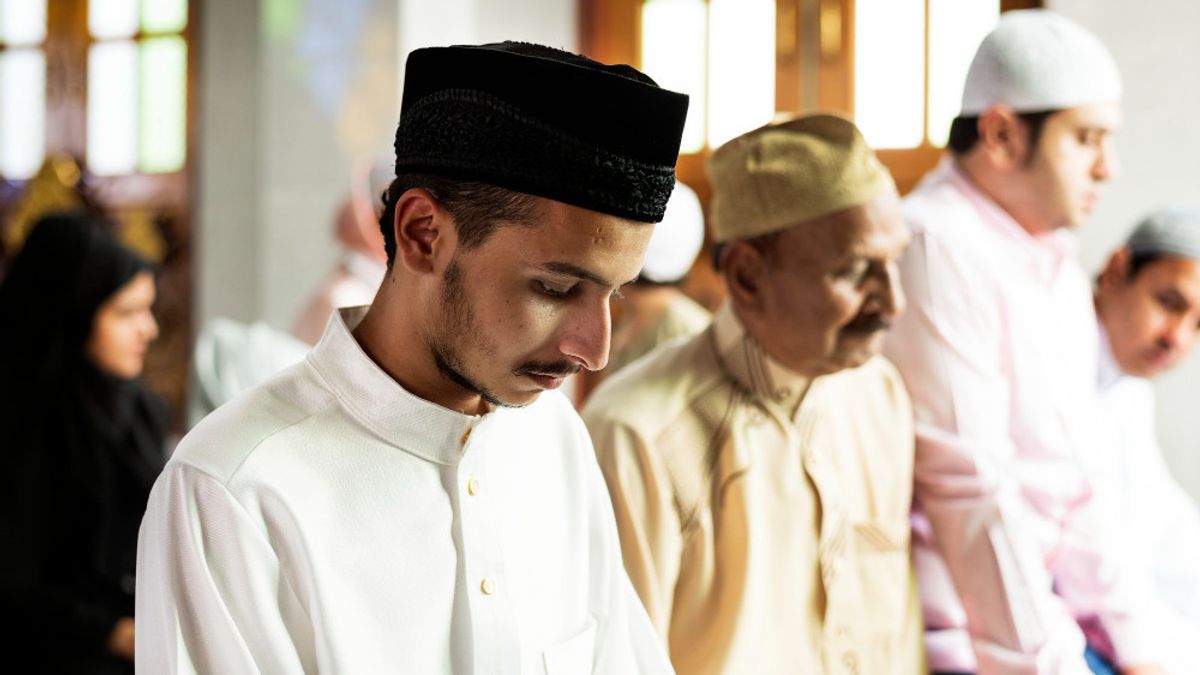YOGYAKARTA - Every good Muslim is ordered to convey the teachings of Islam to one another. Allah SWT ordered this in the Qur'an surah Ali Imran paragraph 104 which reads as follows:
You can't help it, you can't help it, you can't help it, you can't help it, you can't help it, you can't help it, you can't help it, you can't help it, you can't help it, you can't help it, you can't help it, you can't help it, you can't help it, you can't help it, you can't help it, you can't help it, you can't.
Meaning: 'Take action among you a group of people who call to virtue, order (to do) what is makruf, and prevent from being chaotic. They are the lucky ones.'
We know various forms of conveying Islamic teachings, namely through da'wah, tablig, and khutbah. So what are the differences of these three?
As Muslims, of course, you often hear or listen to the delivery of Islamic values and teachings which are carried out by ustaz or ulama. For example, in da'wah in recitation, sermons before or after congregational prayers, and others.
Da'wah, khutbah, and tabligh have similarities in broadcasting Islamic law and teachings. However, of the three there are also differences as follows:
The main purpose of the sermon is to give advice to remind about religious obligations. In addition, the sermon was also carried out with the aim of providing a more in-depth understanding of Islamic teachings to the congregation present.
This is different from da'wah which aims to spread Islamic teachings. Worship means inviting people to understand and follow Islamic teachings, as well as guiding them towards the right path according to religion.
Meanwhile, tablig has a different purpose, which is to provide a more in-depth understanding of Islamic teachings to certain individuals or groups. This method is done to raise their religious spirit.
Worship is a lecture activity delivered at certain times. Usually sermons are performed during Friday prayers, but can also be carried out on other occasions such as Eid al-Fitr or Eid al-Adha.
Unlike sermons, da'wah is not bound by certain times or places. Da'wah can be done anytime and anywhere, either through lectures, writings, or social media.
Meanwhile, tabligh can also be implemented anytime and anywhere. But tabligh is usually done in mosques, homes, or public places. In Indonesia, tablig is often held at major celebrations such as the Prophet's Birthday, Isra' Mi'raj, or the Islamic New Year.
SEE ALSO:
Khutbah is addressed to pilgrims who are present at mosques at certain times to deliver lectures. On the other hand, tablig and da'wah can be addressed to groups of the wider community. Tablig can be addressed to Muslims and non-Muslims, while da'wah can vary depending on the context.
The sermon was delivered by the preacher who was appointed before the congregation at the mosque. Da'wah is performed by da'i or a da'wah interpreter through lectures, writings, or direct interactions. Meanwhile, tablig is performed by muballigh which can be in the form of formal lectures, group discussions, or informal meetings between individuals and muballigh.
The khutbah structure consists of two parts. The first part begins with reading the verses of the Koran, followed by a short lecture from the appointed khatib. The sermon has certain conditions and pillars.
Meanwhile, da'wah does not have a standard delivery structure. Da'wah can be in the form of formal lectures or informal conversations. The tabligh structure can vary depending on the context. Tabligh can be in the form of formal lectures with organized structures or informal meetings where participants discuss and exchange opinions.
Such are the important reviews of differences in sermons, tabligh, and da'wah to understand. Although it has similarities as a broadcast and conveying Islamic teachings, there are differences from the above. Also read tips on improving the quality of da'wah from Vice President Ma'aruf Amin.
Stay up to date with the latest domestic and other overseas news on VOI. We present the latest and updated information nationally and internationally.
The English, Chinese, Japanese, Arabic, and French versions are automatically generated by the AI. So there may still be inaccuracies in translating, please always see Indonesian as our main language. (system supported by DigitalSiber.id)














